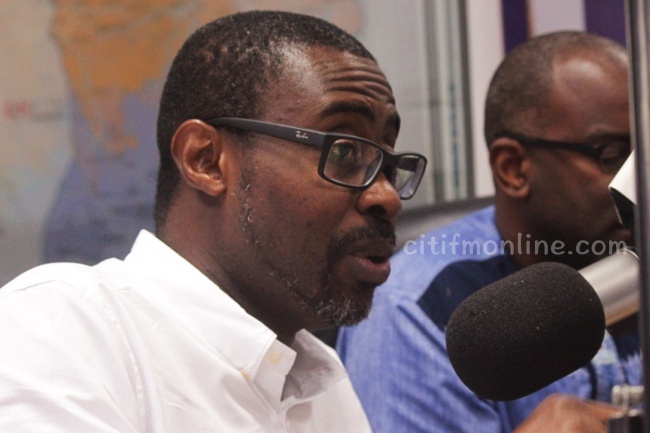Private legal practitioner Ace Ankomah says the suspension of the seven High Court judges is significant in the matter of judicial corruption exposed by journalist Anas Aremeyaw Anas, but not shocking.
Seven out of the 12 high court judges were on Friday October 2, suspended by Vice President, Kwesi Amissah-Arthur acting as President in the absence of President John Mahama.
The Chief Justice, Georgina Wood, had earlier suspended 22 magistrates who were also allegedly caught on camera, by Anas Aremeyaw and his Tigereye PI team, receiving bribes to influence certain cases.
[contextly_sidebar id=”l16UMJqilMfYvORtrTZzGNaWLDZLwt7E”] However, according to the constitution, she does not have the authority to suspend the high court judges, a power reserved for the President.
The President asked the Chief Justice to establish a prima facie case against the implicated judges before any further action could be taken.
Explaining the implications of the latest development in an interview on the Citi Breakfast Show, Lawyer Ace Ankomah said justice delivery in some thirty courts are likely to be affected despite a system put in place by the Chief Justice to deal with the vacuum.
“The suspension was bound to happen….Let us remember that 22 of the lower court judges were suspended some weeks ago. The establishment of a prima facie case against the judges simply means that on the face of it, looking at what has been presented through the video, a case has been made out; and so the judiciary accepts it as correct until proven otherwise. And so now these judges would be called upon to prove that what was seen on the video is not what it is”.
Consequences for the accused judges
Lawyer Ankomah said for the accused judges, they could end up being removed, prosecuted and or have their law licenses revoked.
“The constitution actually uses the word that ‘’a Judge shall not be removed unless on the grounds of stated misbehavior and some other words. So the immediate consequence of this if the misbehavior is proven, then it leads to the removal of judges. The next step is a decision as to whether the police; CID or the Attorney-General will determine whether or not a crime has been committed. If it is ascertained that crime has been committed the persons will be put before court and tried for presumably the offense of corruption by a judicial officer”.
“There is a possible third stage which then goes to the General Legal Council to determine whether if these judges are removed they will qualify to resume their positions as lawyers and whether on the basis of the same evidence, the General Legal Council will determine that they also should be struck off the role of lawyers. And so there are three possible consequences out of all of this and don’t really depend on each other”.
Legal hurdles
Lawyer Ankomah says the process of investigations could be thwarted by legal challenges if the state does not critically pay attention to procedures and rules.
“The law everywhere is based heavy on procedure and technicalities. And so for any good lawyer confronted with a case like this, all they will do is to look out for procedural irregularities and take advantage of them. And so if we don’t guard the procedure, rooms will be created for challenges. There have been some basic challenges about the way things are being conducted now and I suspect that in the course of the hearing there could be more challenges and even at the end of the hearing. There are basic rules which can affect the final outcome and that’s why the guardians of the system have to be very careful as to how they run this because at any point if there are any mistakes or breaches, the affected people have the right under law to proceed to set it aside”.
On how long the process of investigations could take, Mr. Ankomah said the scenario is a novelty and could thus not pinpoint how long the process could take.
“I think we are in for a long haul so let’s not expect results tomorrow” he noted.
–
By: Ebenezer Afanyi Dadzie/citifmonline.com/Ghana


